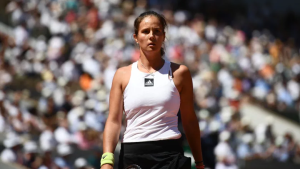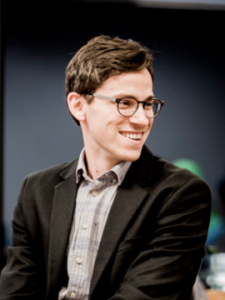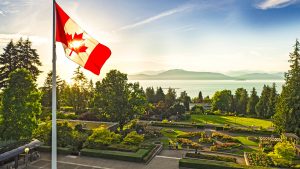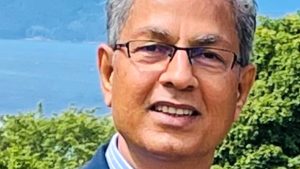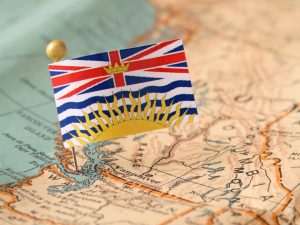Russia’s war is with the rise of Western values, and not just NATO, says Prof. Lisa Sundstrom
With Russian tennis player Daria Kasatkina recently coming out as gay, and also condemning the war in Ukraine, the Russian government targeting those in the LGBTQ+ community may be “a good way to kind of change the channel to seek out an alternative enemy,” says Prof. Sundstrom.
Prof. Michael Byers leads research on the risks posed by falling space debris
What’s the chance that, in the next 10 years, falling space debris could seriously hurt someone or their property? About one in 10, calculated Prof. Byers and his team. “The lack of a major incident has prompted people to not be so worried about it.”
Prof. Yves Tiberghien and Christina Song: South Korea’s foreign policy faces many challenges
South Korea’s recently-elected President Yoon Suk-yeol “faces the same challenge his predecessor faced — balancing the dual demands of trade relations with China and security alignment with the United States,” write Song and Prof. Tiberghien.
Q&A: Dr. Carey Doberstein talks about his newest research on the effectiveness of Canadian agencies
Many of the Canadian government’s public services to Canadian citizens come in the form of agencies, through which these services are organized and provided. This trend of “agencification” in liberal nation-states, though swift and sweeping, has not been thoroughly assessed for performance. UBC Political Science Associate Professor Dr. Carey Doberstein (PhD, UofT), in his newest […]
UBC Political Science accepting applications for tenure-track position in Canadian Politics
The Department of Political Science at UBC invites applications for up to two tenure-track positions in Canadian Politics.
Prof. Yves Tiberghien and Prof. Fuma Aoki write on the state of Japan’s borders and travel amidst COVID-19
“Depending on how the seventh COVID-19 wave develops, [Prime Minister Fumio Kishida] may soon gain the political room to open Japan’s borders more widely,” write Prof. Tiberghien and Prof. Aoki. The two UBC professors discuss the popularity of restriction-easing policies in Japan, and the consequences of their precautionary measures.
Joe Biden risks impeachment if Democrats lose both House and Senate
Professor Paul Quirk told Newsweek that Republicans “will certainly launch numerous investigations” if they regain majorities, however, any “obviously unwarranted, retaliatory impeachment” would “hurt Republicans in competitive states and districts.”
Visiting Professor Swaran Singh writes on the bold promises of new ‘West Asian Quad’ I2U2
The I2U2 Group comprising India, Israel, the UAE and the US, held their inaugural online summit this month. Visiting Professor Swaran Singh writes on how their new template for international relations could tackle unfolding challenges.
Prof. Yves Tiberghien on the assassination of former Japan Prime Minister Shinzo Abe: “this is not the Japan we know”
Expressing his deepest sympathies to the Abe family and the Japanese people, Prof. Yves Tiberghien noted former PM Shinzo Abe’s influence on Japanese politics during and after his leadership, as well as what this tragedy means to Japan’s current political climate.
Prof. Allan Tupper discusses the future of the BC NDP after John Horgan
What’s in store for the BC NDP, now that Premier John Horgan has resigned? Prof Allan Tupper says that “the message of the party has broadened to show British Columbians that the NDP has mainstream values,” and can hopefully expect good leadership to come.
